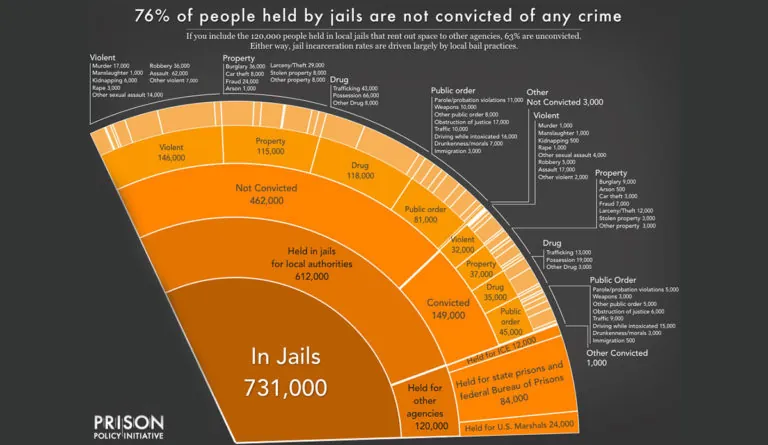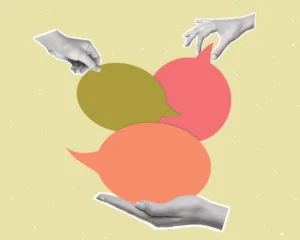Who's in US Jails?
In the United States, a person can be held in jail awaiting trial for days, weeks, months, or years because they cannot afford to pay bail bond.

Read Time: 2 minutes
Published:
The American criminal justice system detains 2.3 million people on any given day. Nearly one quarter of the incarcerated population (731,000) are in jails. Many people use the terms “jail” and “prison” interchangeably, but they are different. The 3,163 local jails in the US serve as short-term holding facilities under the jurisdiction of a city, county, or other local entity for people awaiting trial or sentencing, or serving a term typically less than one year.
This chart from the 2019 Prison Policy Initiative Report provides a detailed breakdown of the jail population. Most (462,000) have not been convicted of a crime. Pretrial detention is largely caused by defendants’ inability to post bail bond. The report reveals that $10,000, the median felony bail bond amount, is equal to 8 months income for most detainees.
In the United States, a person can be held in jail awaiting trial for days, weeks, months, or years because they cannot afford to pay bail bond. A person’s release from jail is contingent upon the payment of money as assurance that they will attend future court proceedings.
The current system prioritizes payment of bond as the determinant of pre-trial release. Thus, non-wealthy, legally innocent individuals who cannot afford to post bail are incarcerated indefinitely until their case is resolved in court.
In recent years, some judges have declared cash bail systems unconstitutional. In 2017, a Cook County judge issued an order requiring judges in Chicago to consider a defendant’s means to pay before establishing bail. Later that year, the Massachusetts Supreme Judicial Court similarly ruled that judges must consider a defendant’s inability to pay when setting bail.
Databyte via Wendy Sawyer and Peter Wagner, Mass Incarceration: The Whole Pie 2019. Prison Policy Initiative.



